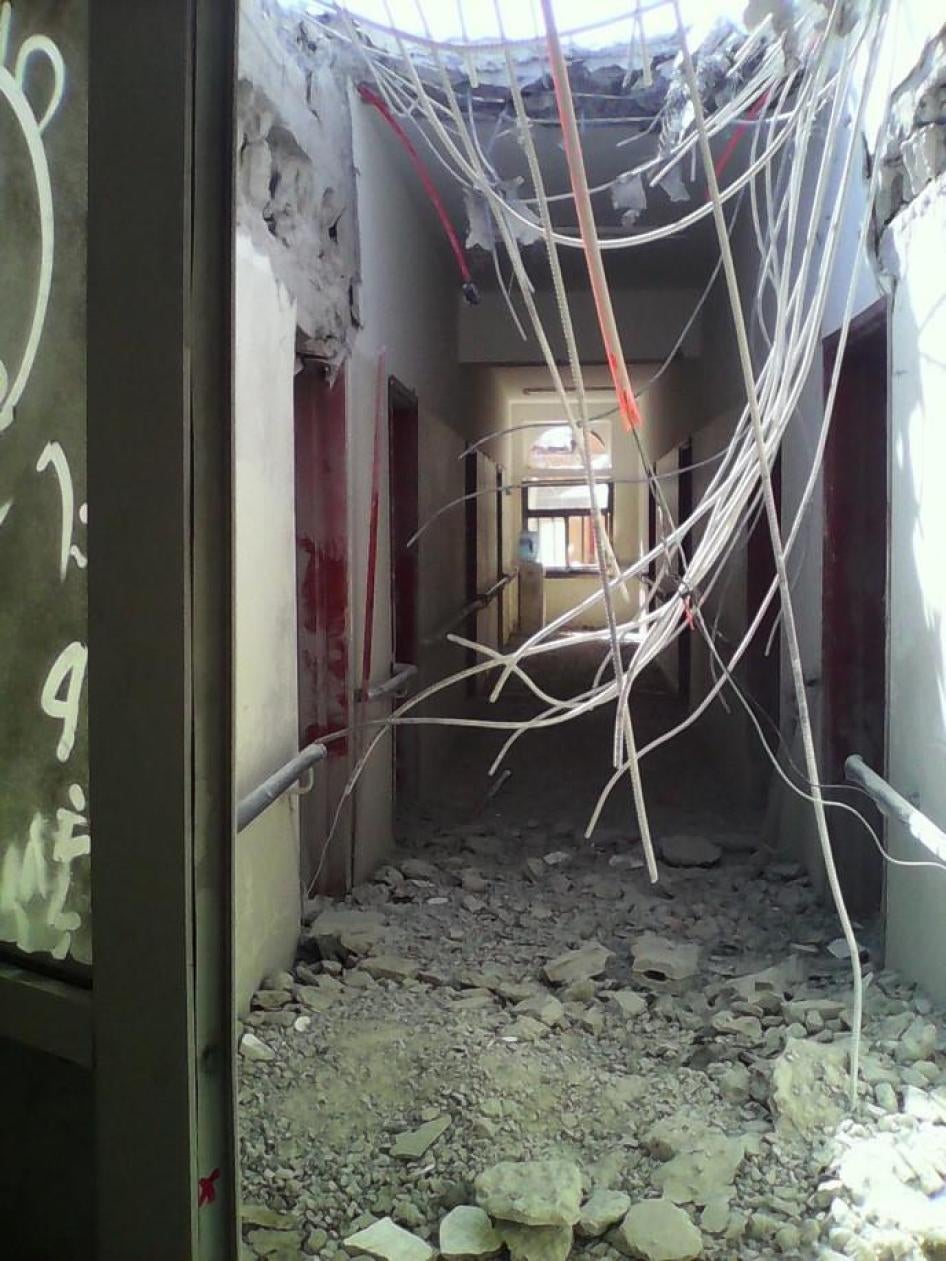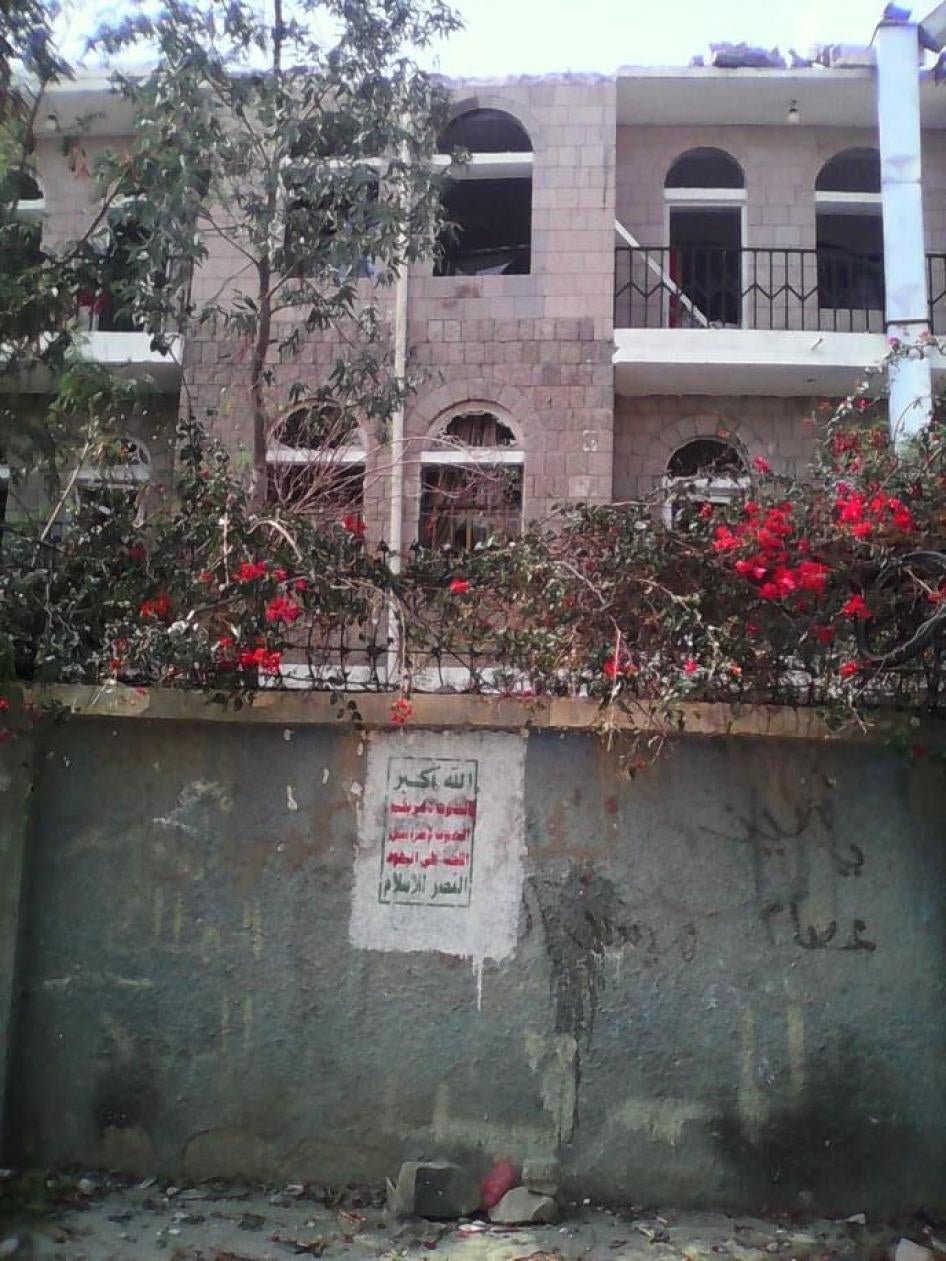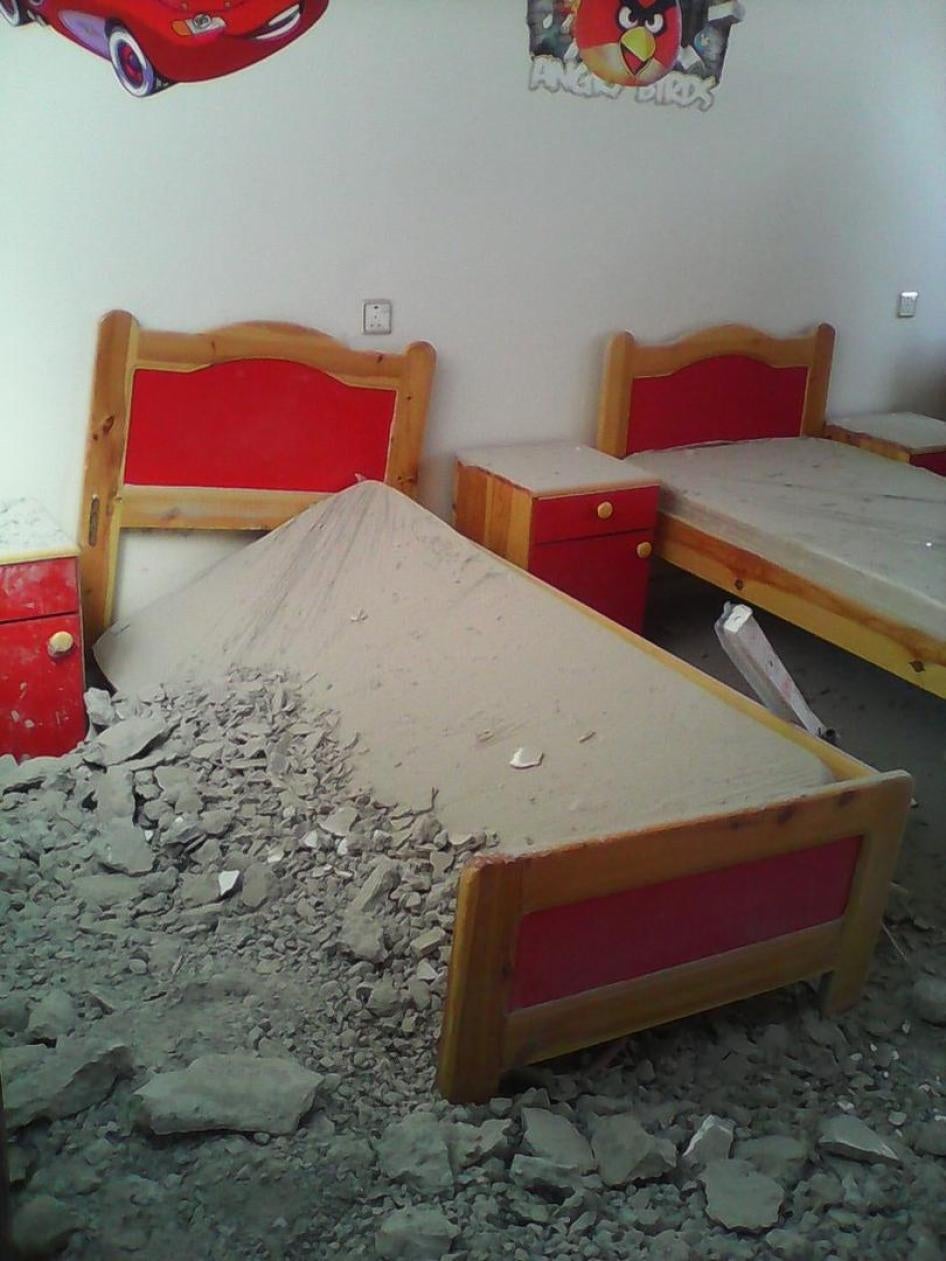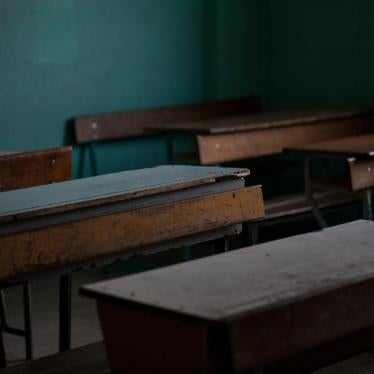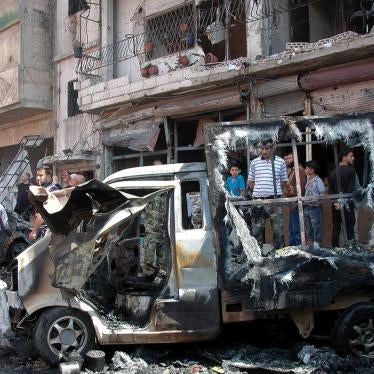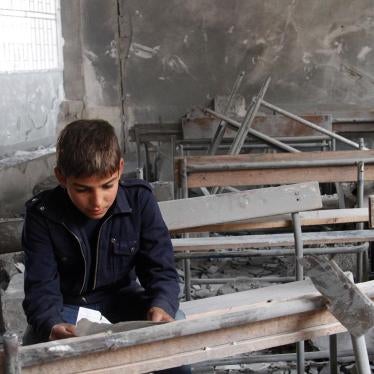(Beirut) – Yemen’s Houthis unlawfully placed a school for blind students in Sanaa at grave risk by basing militia forces in the facility’s compound. A Saudi Arabia-led coalition bomb that hit the compound on January 5, 2016, did not explode, but injured four civilians and damaged the capital’s only center for people with visual disabilities.
Just before the strike, I heard the thunderous sound of a plane in the air and the cracking noise of anti-aircraft fire. Minutes later I heard the bomb drop/hit. I started screaming. The window shattered into my room, pieces landing on my chest and cutting my foot.
Saleh al-Matari, 27, another staff member, said:
I saw light and then shards of glass as the window shattered. I heard screaming and crying from the housing building. Moments later I saw crowds of people in the yard of the compound helping to evacuate about 30 blind students from the residence.
The shock damage from the bomb impact broke windows and blew out doors in three buildings in the compound, as well as at least four neighboring buildings. The strike wounded two staff members and one student, 18 years old, from the center; a local resident; and a Houthi guard. Had the bomb detonated, damage to the buildings and civilian casualties could have been far greater. Houthi forces quickly removed the bomb, so it was not possible to determine its type, Human Rights Watch said.
All of those interviewed said that the area had not previously been targeted by airstrikes.
Al-Himyari, the center’s manager, said that when the conflict with the coalition started on March 26, 2015, Ansar Allah, commonly known as the Houthis, set up an office on the ground floor of the kindergarten building and installed guards at the compound’s entrance. All classes had been suspended because of the fighting, another staff member said, but when they were scheduled to resume in October, the teachers refused to take up their posts until the Houthis left. The Yemeni Education Ministry ordered the Houthis to vacate only the center and housing buildings, and ordered the teachers back to work even though some Houthis remained in the third building and in the mosque and guard booth.
Witnesses said that youth armed with Kalashnikov-type assault rifles used the Houthi office as a base during the day and often slept there at night. At the time of the attack, about 15 armed men were in the guard booth at the compound’s entrance. Hulboob said that until three months ago, about 80 Houthis were at the compound. They parked up to three four-by-four vehicles there, and slept in the office, guard booth, and mosque. According to Hulboob, by December, the Houthi presence in the compound was much reduced. During its visit, Human Rights Watch saw one Houthi vehicle painted in camouflage colors parked outside of the compound gate and Houthi camouflaged vehicles patrolling the area.
All parties to the conflict in Yemen must take all feasible precautions to spare civilians under their control from the effects of attacks. That includes avoiding deploying their forces in densely populated areas and to the extent feasible, removing civilians in the vicinity of their military forces. Forces are prohibited from using civilians to shield military objectives or operations from attack. “Shielding” refers to purposefully using the presence of civilians to protect military forces or areas to make them immune from attack, and is a war crime.
Attacking forces are not relieved of their obligation to take into account the risk to civilians simply because the defenders have put civilians at unnecessary risk. The use of heavy weapons, including unguided aerial bombs, against military objectives in populated areas heightens concerns of unlawful attacks that cannot discriminate between combatants and civilians or can be expected to cause harm to civilians that is disproportionate to the anticipated military advantage.
The use of schools by parties to the conflict endangers students, teachers, and administrators by turning schools into targets for attack. Yemen, Saudi Arabia, and other coalition members should join the international Safe Schools Declaration, endorsed by 51 countries, agreeing to use the 2015 Guidelines for Protecting Schools and Universities from Military Use during Armed Conflict, which provide guidance to parties to armed conflict on avoiding impinging on students’safety and education.
The United States, United Kingdom, and other countries should not sell aerial bombs to Saudi Arabia in the absence of serious investigations into alleged laws-of-war violations in Yemen, Human Rights Watch said. The United Nations Human Rights Council should create an independent, international inquiry into alleged violations of the laws of war by all sides.
The attack highlighted the greater risks endured by civilians with disabilities, whose support system has been put under increasing pressure by Yemen’s conflict. Al-Himyari said that the al-Noor center “plays a vital role because it is the only school and home for blind people in Sanaa and has prepared generations of people to be ready for professional life.” He hoped it would be repaired quickly.
The number of people with disabilities in Yemen has swelled as the conflict continues. Nearly 6,000 Yemenis with newly acquired disabilities from airstrikes have used the services of the Fund for Rehabilitation Care in Yemen in the last nine months, said the fund’s assistant manager, Manal al-Marwani. This has further burdened the country’s already beleaguered healthcare system. The UN estimates that 3 million people with disabilities in Yemen are facing growing challenges in meeting their most basic needs.
“After nine months of fighting, there has been no letup in coalition air attacks striking homes, hospitals, markets, and now a school for people with visual disabilities, making clear that none of Yemen’s civilians are safe,” Barriga said.
